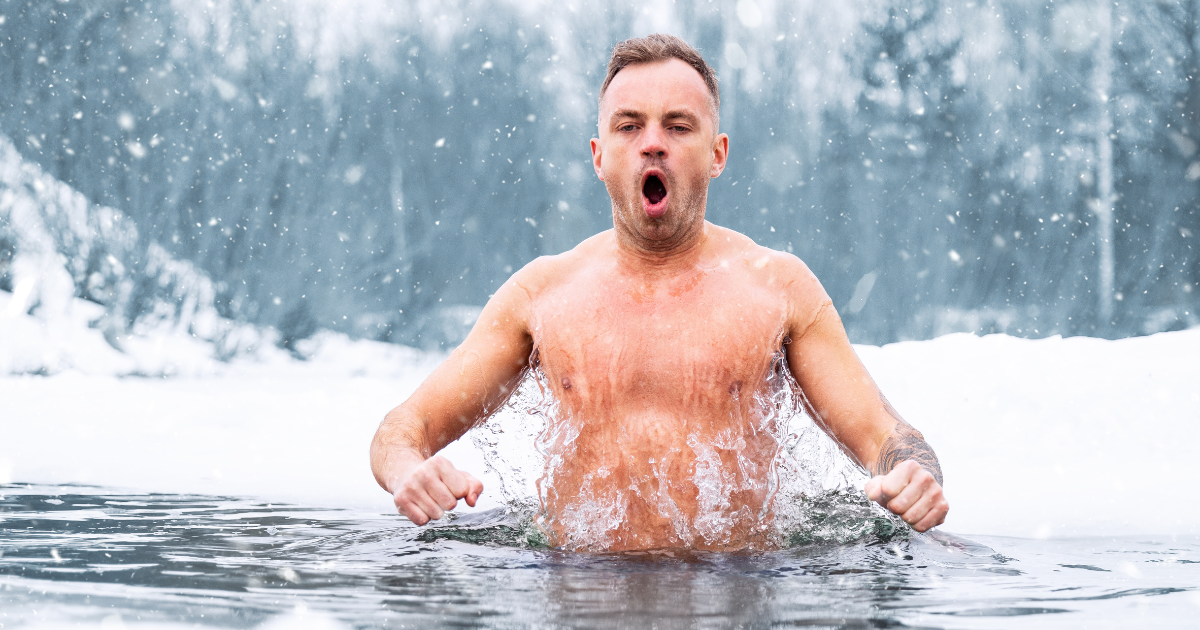How Cold Water Therapy Helps To Calm You
You may have come across Wim Hof’s television programme; “Freeze The Fear” or seen people dipping into icy lakes on social media and wondered how cold water could possibly help with stress.
As it turns out, the key lies in the vagus nerve, one of the most important nerves in the body when it comes to regulating how we respond to stress.
What is the vagus nerve?
The vagus nerve plays a vital role in the autonomic nervous system, the part of our nervous system that operates without conscious control. This system is made up of two main parts:
- The sympathetic nervous system, responsible for the fight or flight response
- The parasympathetic nervous system, which supports rest, digestion and recovery
When the vagus nerve is activated, it helps switch the body into a more restful state by stimulating the parasympathetic nervous system. This shift can reduce stress levels, calm the mind and bring the body back into balance.
How cold water affects stress
When the body is exposed to cold, it adjusts to the sudden temperature change by reducing sympathetic activity and increasing parasympathetic activity through the vagus nerve. This helps to create a calming effect in the body.
Improving what is known as vagal tone, meaning the strength or activity of the vagus nerve, has been linked to:
- Lower heart rate and blood pressure
- Relief from anxiety, depression and tension
- Improved emotional resilience
- Reduced inflammation
- A stronger immune system
These effects can make a real difference in how we cope with daily stress.
You don’t need a frozen lake
Thankfully, you don’t need to submerge yourself in ice-cold water to support vagal tone. There are other, more accessible ways to help calm your nervous system:
- Finish your regular shower with two minutes of cold water
- Splash your face with cold water
- Humming, singing, laughing or gargling
- Slow, deep breathing from the diaphragm
- Practising yoga or meditation
- Spending time in nature
- Enjoying regular exercise
- Staying socially connected
- Maintaining a positive outlook
These small actions, practised consistently, can build resilience and support your sense of calm.
Supporting calm from the inside out
Stimulating the vagus nerve can be a gentle and natural way to reduce stress and support mental wellbeing. While cold exposure is one method, calm breathing, positive connection and therapeutic approaches can also encourage balance in the nervous system.
In solution-focused hypnotherapy, we often work with clients who want to feel calmer, more in control and more resilient in daily life. Helping the body and mind reconnect through focused relaxation can support the same calming pathways influenced by the vagus nerve.
If you are considering cold water immersion or have any underlying health concerns, please speak to your doctor first.

